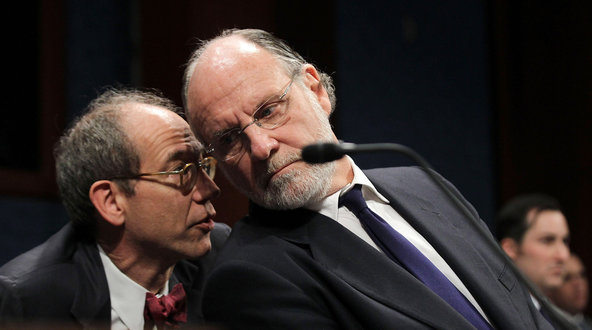The 5-cent increase in the dividend, worth about $400 million a quarter, is about 3 cents per share more than many analysts had expected. Microsoft shares rose about 1 percent on the Nasdaq.
The company also announced a share repurchase program of up to $40 billion, which has no expiration date, to replace a $40 billion program set to expire on September 30.
“We view this as a further indication that things are changing at Microsoft with respect to corporate governance that we believe could benefit shareholders over the next six to 12 months,” Nomura Securities analyst Rick Sherlund said in a note.
A hotly anticipated investor meeting on Thursday will give Microsoft shareholders their first chance to press management on its plans to replace Chief Executive Steve Ballmer, who last month announced plans to retire within a year.
Ballmer made the announcement just weeks after he unveiled a ‘One Microsoft’ grand plan for the company to focus on hardware and cloud-based services.
But poor sales of the new Surface tablet, on top of Microsoft’s years-long failure to make money out of online search or smartphones, have cast doubt on the plan.
This month, Microsoft announced it would buy Nokia’s phone business and license its patents for 5.44 billion euros ($7.2 billion), a foray into mobile devices that brings potential CEO Stephen Elop back into the fold.
For years, investors have called on Microsoft to return cash to shareholders rather than invest in peripheral projects and limit its focus to the vastly profitable Windows, Office and server products.
Activist investor ValueAct Capital Management LP, whose recent lobbying of the company may have played a role in Ballmer’s decision to retire earlier than he planned, is thought to favor such an approach.
In the last two years alone, Microsoft has lost almost $3 billion on its Bing search engine and other Internet projects, not counting a $6 billion write-off for its failed purchase of online advertising agency aQuantive.
Some analysts said the increase in the dividend, payable on December 12 to shareholders of record on November 21, was more than they had expected.
“Most people were expecting a little less, so this was a pleasant surprise,” Morningstar Inc analyst Norman Young said.
Microsoft shares were up 0.9 percent at $33.10 in midday trading.
(Reporting by Chandni Doulatramani in Bangalore; Editing by Saumyadeb Chakrabarty and Robin Paxton)

Article source: http://www.nytimes.com/reuters/2013/09/17/business/17reuters-microsoft-buyback.html?partner=rss&emc=rss
